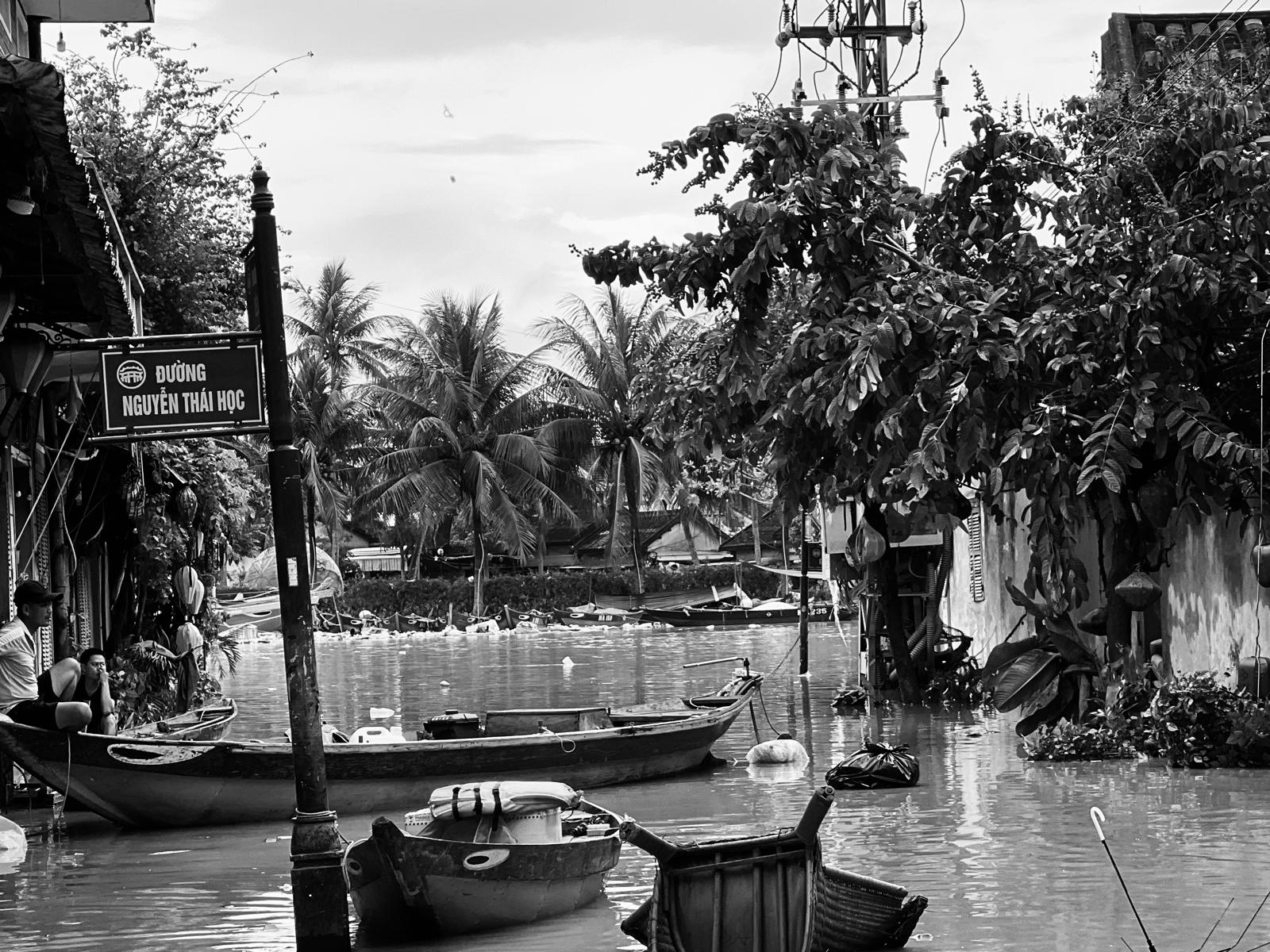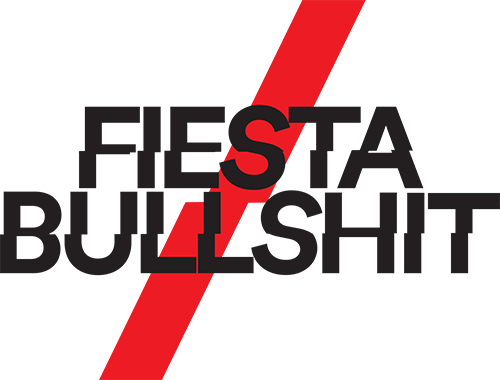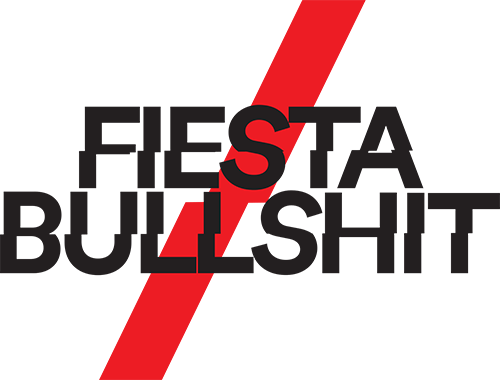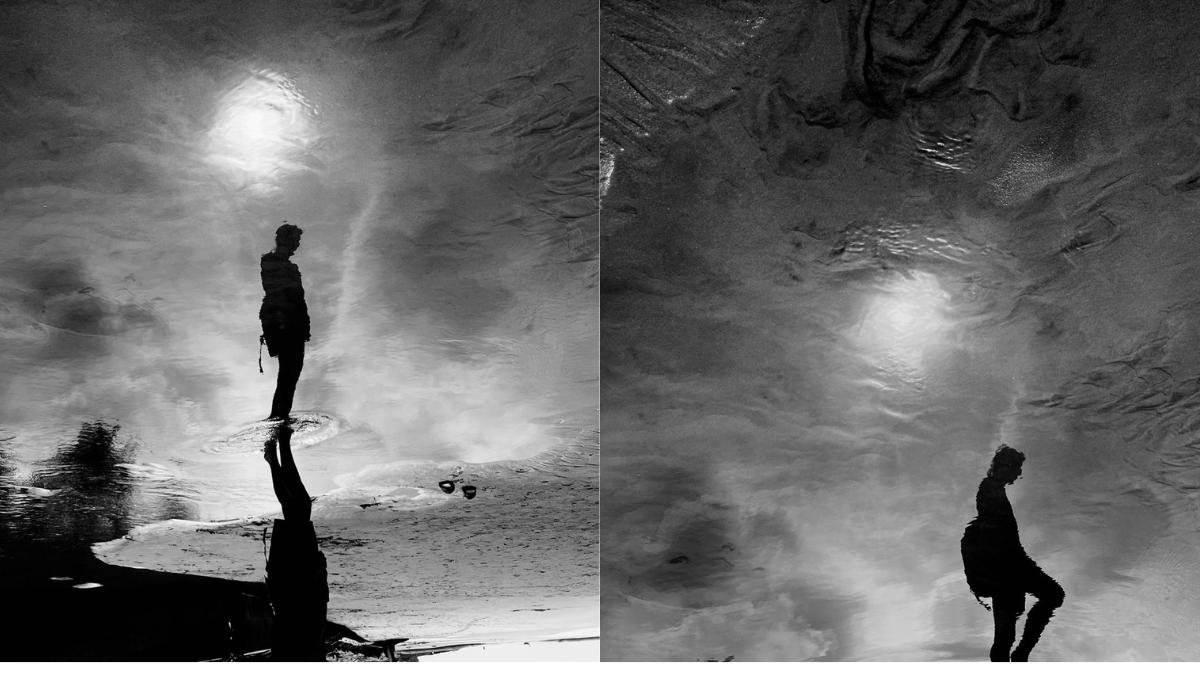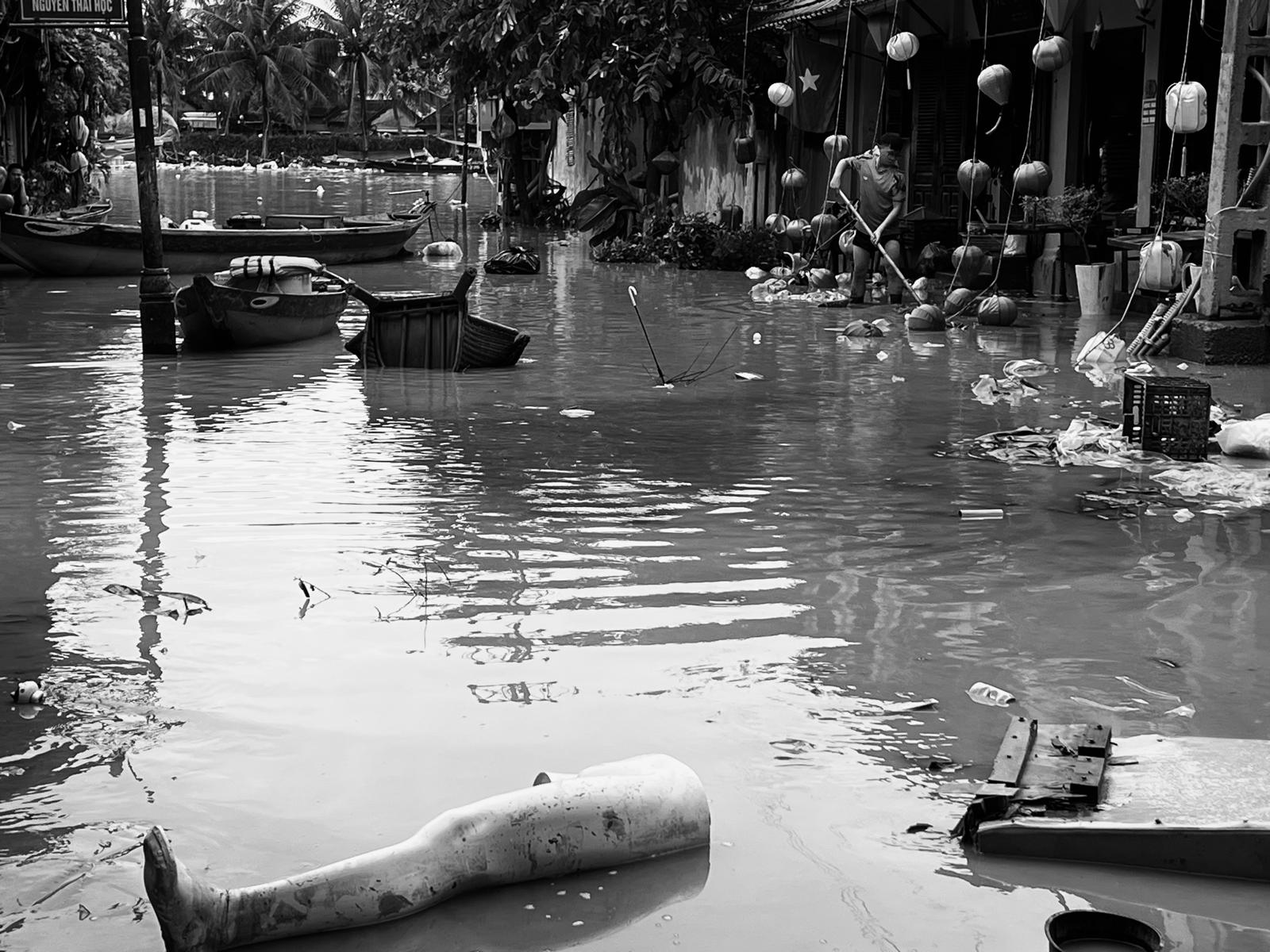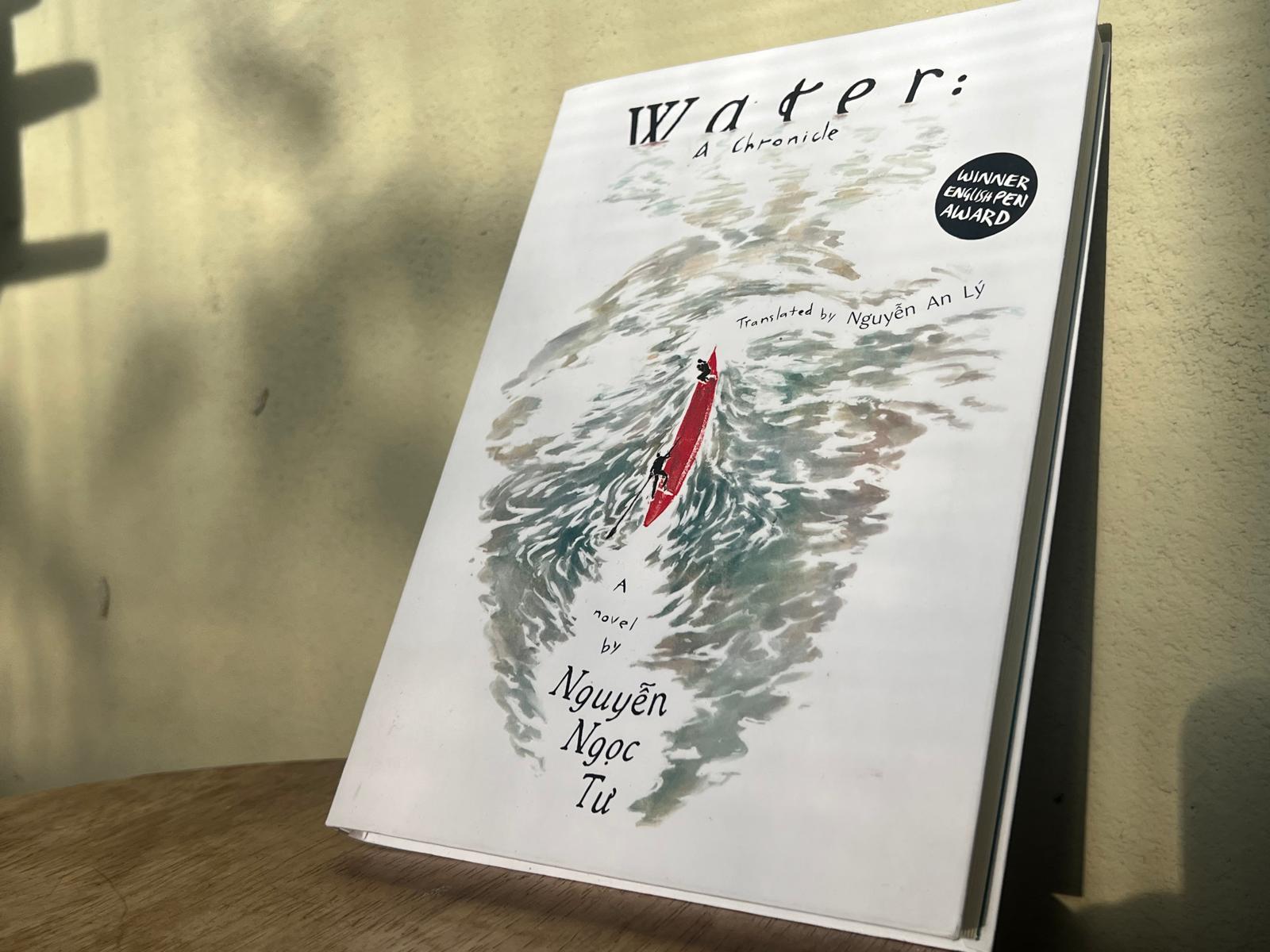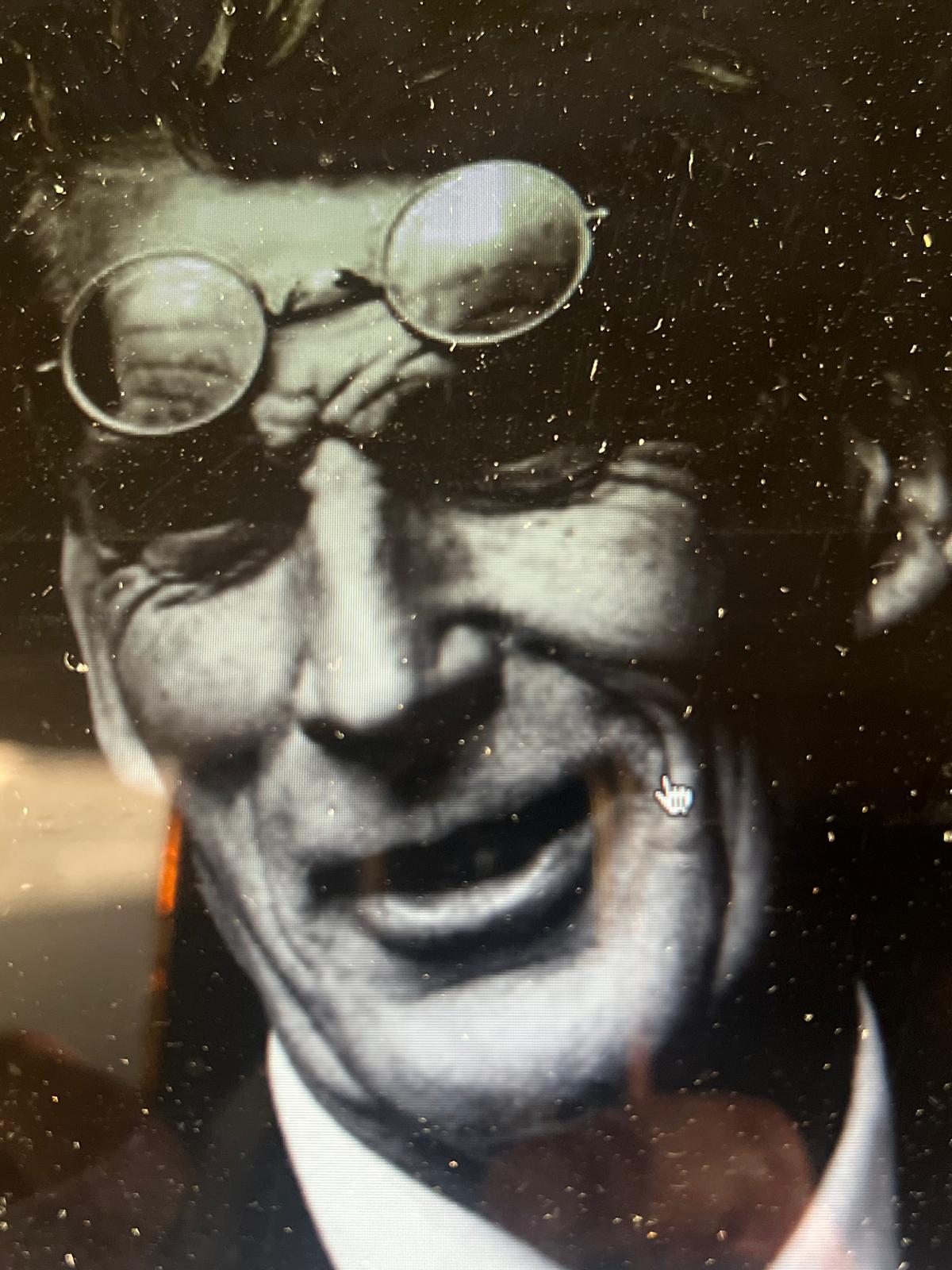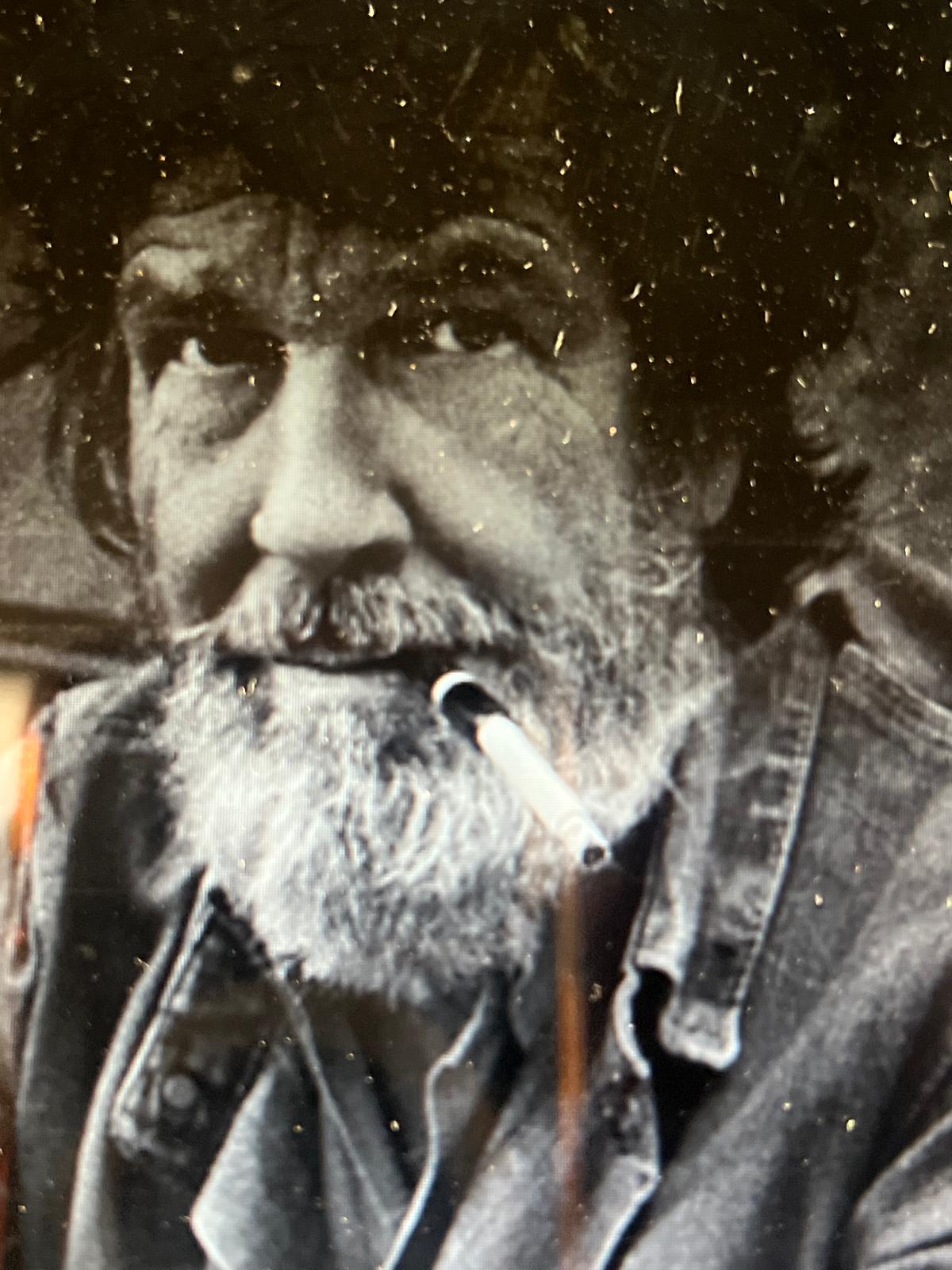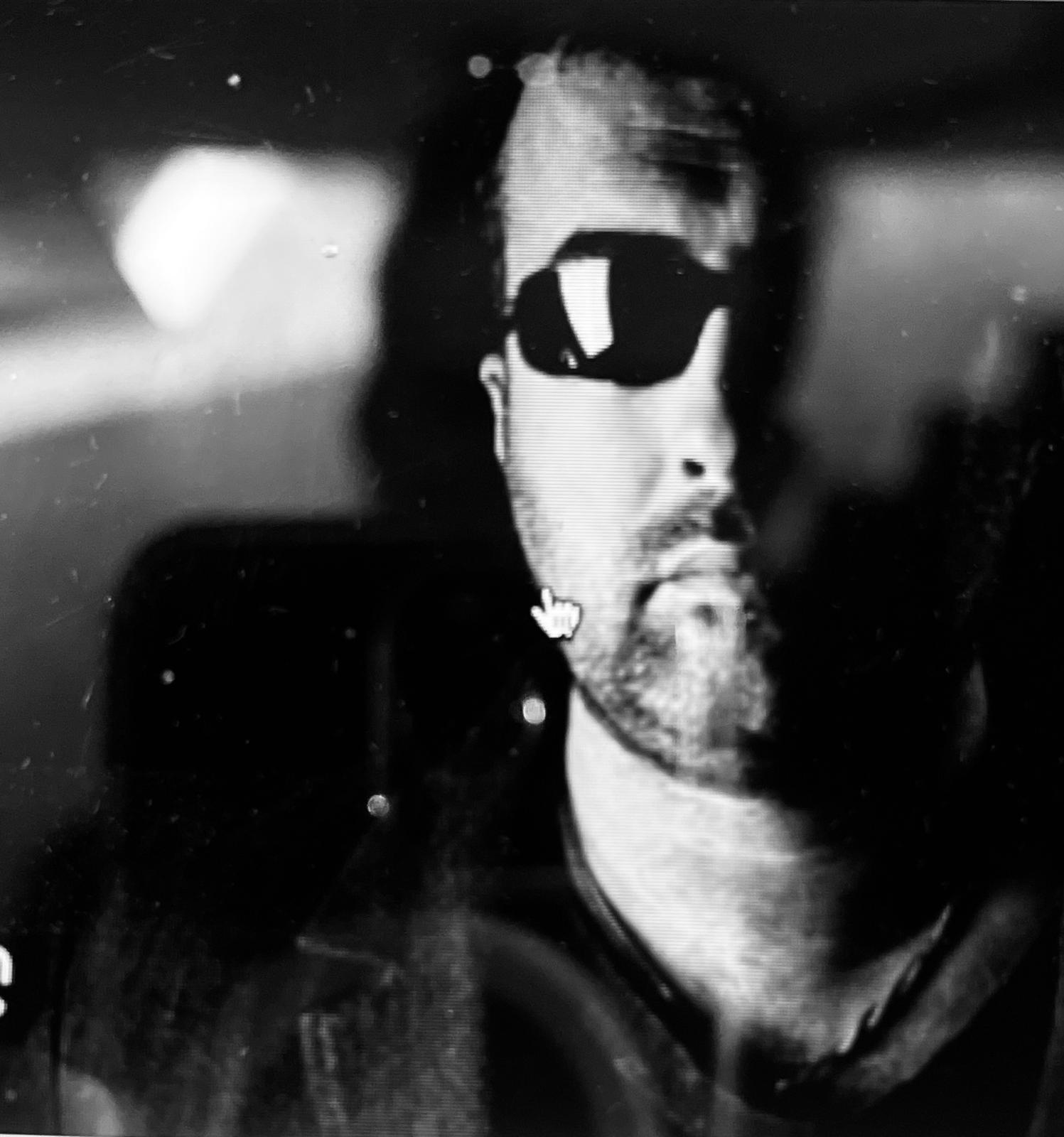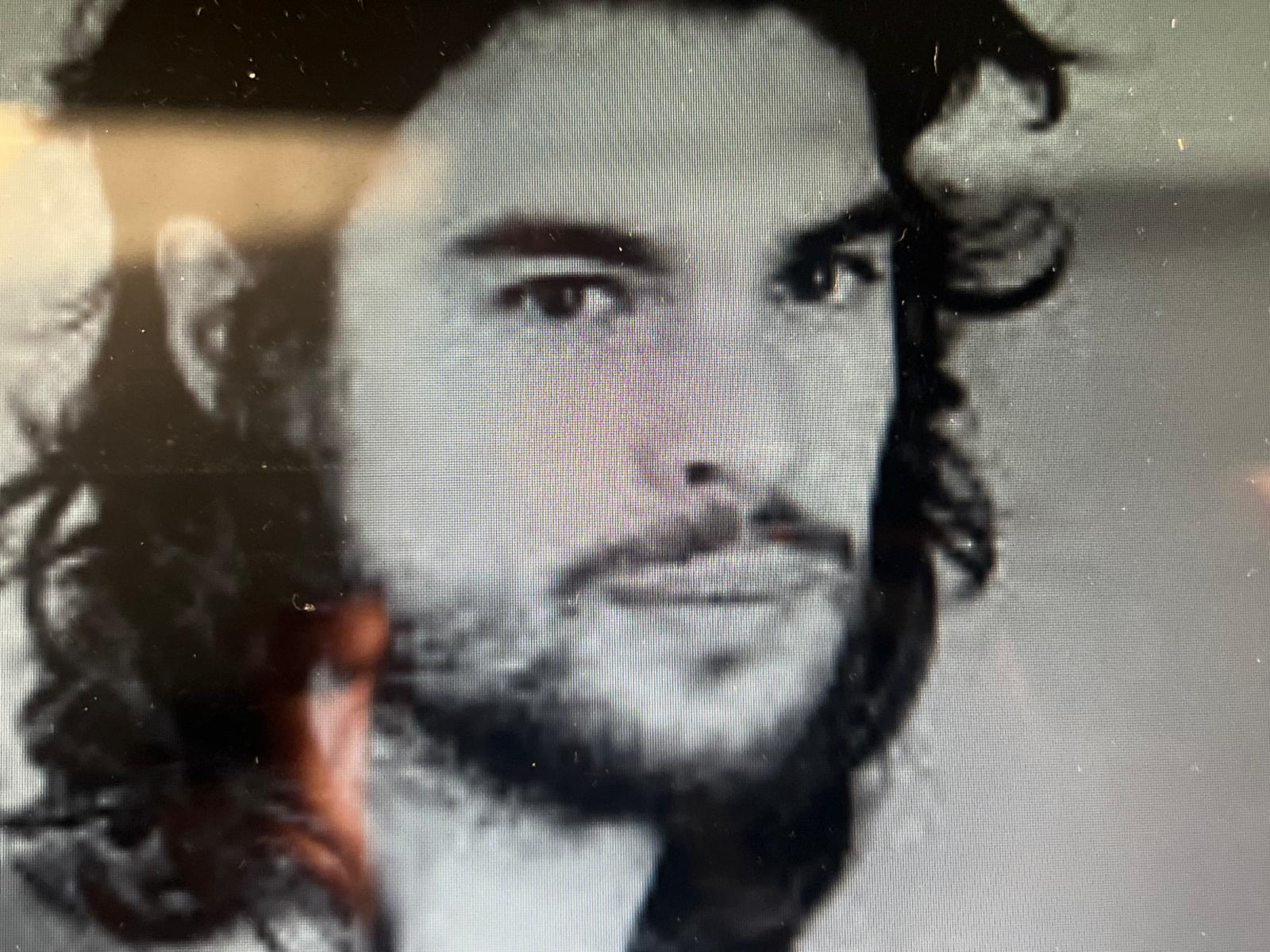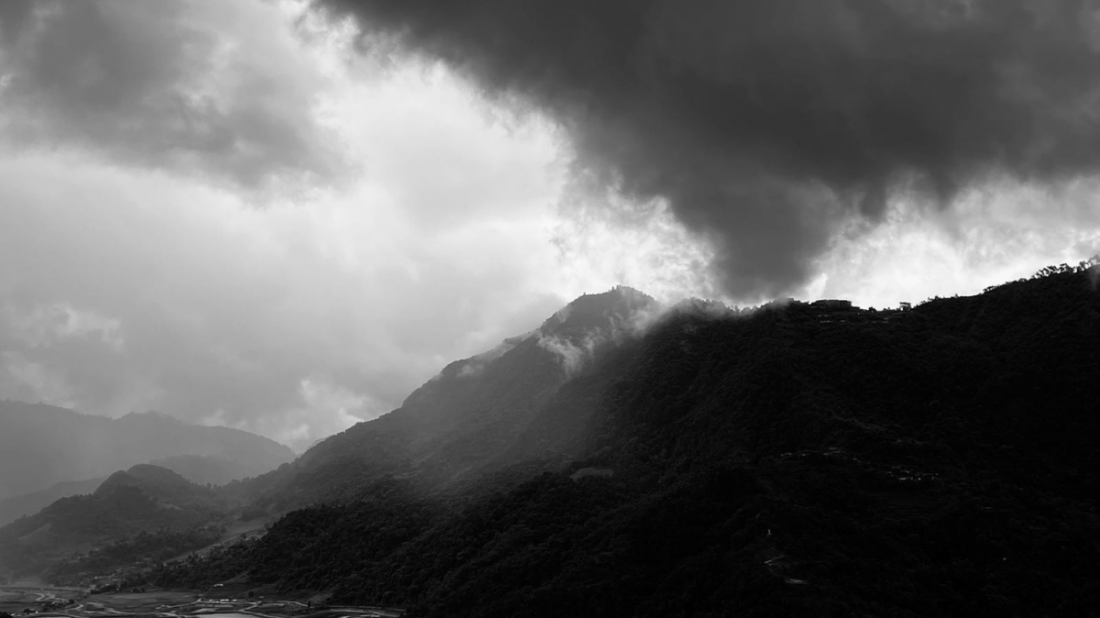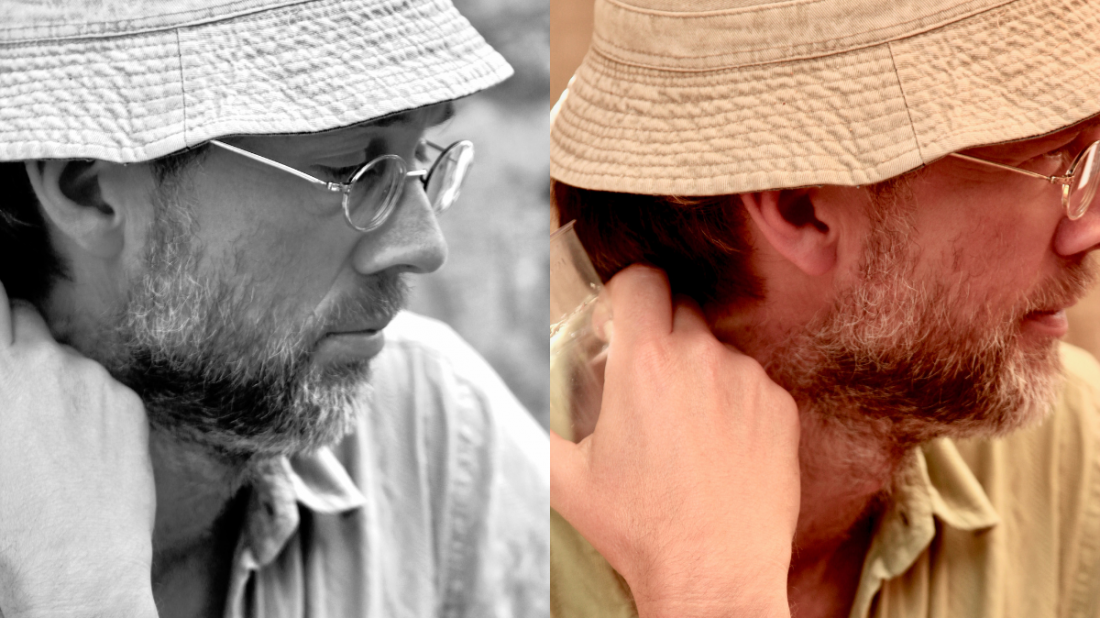NOWHERE-NOW HERE, HECTOR CASTELLS – #3 SANS CAGE: SILENCE, DESERTS, FLOODS, BECKETT AND Sirāt.
0 PREAMBLE
NOW HERE, MONEGROS DESERT, SPAIN 2005
The first time I saw Nora dying I thought I was dead and that she was the Great Beyond. It was almost a soothing image compared to the apocalyptic landscape surrounding us.
It happened during the first edition of Monegros Festival, a demented 24 hours rave in the namesake Spaniard desert, where she was one of the headliners and I was one of the runners.
I had been booked to pick up the infamous Dave Clarke, the English dictator of hard techno, at Zaragoza’s airport, where he was to land on his private jet.
It was a cumbersome morning, and I had a puncture on my way that seemed to burst the heart of the music promoter I worked for —except promoters are mostly heartless.
By 6am, the desert was a dawning plateau of loose jaws, raging pupils and collapsing bodies, including Nora’s.
“Fucking H,” I remember her saying when we both were revived after our simultaneous comas.
She had the sweetest smile and the darkest mind, and upon regaining consciousness she looked at me, kissed me and asked:
“How would you name the last afterhours of Humanity?”
My mouth was also a desert. She answered instead:
“Lost in TransNation.”
NOW HERE: Indochina, B.C & November 2025th
“Nothing is left out there. Water has occupied the temple yard, water and darkness (…) Water everywhere.” —Nguyễn Ngọc Tư: “Water: a Chronicle.”
The Tao produced One; One produced Two; Two produced Three; Three produced All things. —Lao Tzu, “Tao Te Ching.”
First there’s one drop, then a second —then all of them.
You were writing about the long-gone desert and the long-gone ravers when the sky started grumbling. You cancelled writing and began reading Water: A Chronicle, a novel of drowning pronouns in forsaken islands set against an imaginary Mekong Delta, a landscape historically and hysterically punished with biblical droughts, floods and a lack of writers —except her.
The book is a subjugating vortex spinning on behalf of gender fluidity and illiteracy, hope and ellipsis, and once you dived into its many streams you became oblivious to the outside deluge —until passing out.
Your windows were opened and you woke up drenched half an hour later, bed sheets and hardcover copy soaked, the whole Old Town underwater: it was the worst flood in sixty years, and the closest to Eastern Apocalypse you have ever witnessed.
NOW HERE: Paris, 1969.
“I’m something quite different, a quite different thing, a wordless thing in an empty place, a hard shut dry cold black place, where nothing stirs, nothing speaks, and that I listen, and that I seek, like a caged beast born of caged beasts born of caged beasts born of caged beasts born in a cage and dead in a cage, born and then dead, born in a cage and then dead in a cage, in a word like a beast, in one of their words, like such a beast…”
—“The Unnameable” —Samuel Beckett.
Language is a beast, idioms are monsters and palates are the cages where our tongue-slug gives ourselves away, prompting others to ask us the worst question in the world: “Where are you from?”
There was an offline, 20th century time, when many foreign writers relocated to Paris like exhausted slugs. They wanted to move on and ditch their incriminatory phonetic and grammar cages; many flew wars and recession at home, although no one was as outspoken and semantically tired as Samuel Beckett.
It is becoming more and more difficult, even senseless, for me to write an official English. And more and more my own language appears to me like a veil that must be torn apart in order to get at the things (or the Nothing-ness) behind it. Grammar and Style. To me they seem to have become as irrelevant as a Victorian bathing suit or the imperturbability of a true gentleman. A mask… Is there any reason why that terrible materiality of the word surface should not be capable of being dissolved?
—Beckett letter to his friend Axel Kaun, 1937
In 1969, Beckett wrote sixty sentences twice in sixty pieces of paper, put them in a box, drew them and followed their random order to build a story named “Sans” —by then he had already dumped English and was writing in French.
The story is like a minimal techno tune that could work as the script of a rave in the desert or a session of Vipassana: an alienating, repetitive frequency devised to deplete language and thinking—if only to turn it into a diagram mapping our unstoppable stream of consciousness; a river inside a fish bowl, a crystal cage of sorts.
Beckett used French to free himself from the English armour, and managed to write all his major works using his non-native, adoptive language.
Idiom prisoners tend to go back to their original cage, and so did Beckett with English, a language that since embracing French he would only tackle as a “translator.”
But since he was a writer, instead of translating he rewrote himself, a daring acrobatic that obliterated the tedious, surgical spirit of translation.
So when it came down to translating “Sans”, he chose “Lessness ,” a classic Samuel way to say “Without.”
“Sans” was Beckett’s quintessential adverb, the core of his philosophy, literature and plays, and the spirit of his heroic effort, no wonder why he enjoyed asking himself: “If Less is More, then what is lacking?”
SILENCE AS FREEDOM
According to one biographer and a number of scholars, “Sans” was inspired by John Cage’s iconic piece “4:33”, a LACKING symphony written either for one or a combination of instruments.
Its original performer, the pianist David Tudor, played it for the first time in Woodstock, New York (1952) in front of five hundred people.
Tudor sat down, opened and closed the piano cover three times, one for each interval, and did exactly as he was told: NOT TO PLAY.
“4:33,” aka “Silent Piece,” was a lightly portable, unmade score set to bloom in many auditoriums of the future, where a number of musicians would be holding their instruments on stage in front of a sold-out audience, paid to do literally nothing, something Beckett’s characters were extremely good at.
The ultimate intention of the piece was to turn the audiences towards the sounds around them: creaking chairs, unclear throats, ambulances driving outside, slow moving piano cases…
John Cage freed music from his surname, and turned his empty music sheet into the first background-noise gig ever, still performed worldwide today, thirty-five years after his death.
“4:33” is a four minutes and thirty-three seconds silent piece, divided in three intervals, all of them quietly deprived of performed music.
Beckett tore apart the idiom veil and got inside the murky puddle of the music-less soul just using WORDS! —To international and rather noisy acclaim.
LIKE THE DESERTS MISS THE RAIN
Upon regaining consciousness, Nora and I were escorted to the infirmary of the festival, where the doctor rendered us unable to drive and ordered our “immediate transfer to Barcelona.” Our drinks had been spiked with the same poison that the promoter was selling, so it wasn’t rocket science to figure out what happened.
As it turned out, Dave Clarke had missed his own jet and never showed up, and I drove the rental car to the desert happily lacking any dictator on the co-pilot seat.
As luck would have it, after Nora and I were revived, while resting backstage, the promoter realised that he was short of seats to drive the foreign DJs and entourage back to Barcelona, as he had stipulated in their contracts.
NATIONAL SURNAME SHAME
Nora and I were post-mortem kind of blue, though still breathing, and since we were the only two members of the backstage lacking international surnames and with intoxicated livers, the promoter decided that I was to drive her in Dave’s Clark rental car in order to accommodate the rest of the talents in vehicles driven by runners who had not been in a recent near-death experience.
I remember Nora’s outrage clear as day:
“Are you saying that if someone has to die, we are the chosen ones?” she asked the promoter. “Just because of our surnames and condition? Buy your Karma a leash and keep an eye on it, motherfucker, because it is coming back to you.”
The promoter was a promoter: someone good at stealing money and bad at everything else, including booking himself a ride on any of the other healthy cars.
In his frantic rearrangement of runners and talents, he had forgotten about himself, and ended up realising that if he wanted to drive back to Barcelona, he needed to do it with Nora and I.
“OMG is that a FUCKING UFO?” Nora asked me at 7:30AM, upon encountering the first tollbooth on the highway, one hour into the drive.
“I’m not driving, POISON IS,” I remember saying.
THE BACK SEAT
The promoter was losing it at the back of the car. Nora and I kept pretending that we were too intoxicated to drive, and swapping seats while doing so.
She would arch her spine and move over me, while I held my feet at the pedals and slid under to reach her seat.
The promoter was pale, shouting, and getting sick, and kept ordering us to stop the car, eventually using many times a word you would seldom hear from any music criminal: “PLEASE-PLEASE-PLEASE.”
We ignored the begging all the way, ultimately leaving him in a dodgy junction outside Barcelona, exhausted, dehydrated and penniless, a better death than the one he had not prevented us from dying.
NOW HERE, TERUEL DESERT, 2025.
Not many people are as good as the Japanese in the art of cutting sentences short, reducing oral language to the context, and evade adjectives, pronouns, and even verbs when talking. Beckett would be proud.
They generally avoid asking anything, but when the conversation and etiquette demands it, they stick to context and good manners, and instead of invading you with a string of words, they spare you as many as possible therefore the horrifying line “Where are your from” becomes just “Where?”
During those days of abusive promoters and demented raves, if someone had asked Nora “WHERE?” she would probably have said: “Lost in Trans Nation,” one of her unforgiving late lines, the title of her posthumous record and only short story.
In it she wrote:
“Once upon time there was a no man’s sort of land where trees were an anomaly, language a blasting speaker, and air an illusion already turned into dust.
In that morbid, transnational territory, instead of breathing you just danced to death: WELCOME TO Lost in TransNation.”
LAXITUDE
Fast-forward fifteen years, and Oliver Laxe, a Galician filmmaker of transnational background and lifestyle, has directed a movie that seems devoted to Nora’s late record and Beckett’s decimated notion of existence.
Sirāt opens with a shot of a towering sound-system set against a red canyon in the Moroccan desert.
The camera zooms in and out the sedimentary ravine like a vulture looking for blood. It is ungodly early and dusty, and the pristine, reckless soundtrack takes hold: dark techno-house blasting the hellish dawn, while an abrasive bird-eye shot introduces us to the anti-heroes, a quintet of crippled ravers defying physics and hydration, dancing the scorched plateau amongst other reprobates like there is no tomorrow.
And there isn’t really: raving is a headlong rush towards nature, not because you love nature, but because it is sound proof, so you can bring your generator and towering speakers, and blast them beyond the reach of any neighbours or police stations.
No matter how much you’d pump up the volume, what you ultimately want is to BLAST yourself, an unnerving self-obliteration that Laxe portrays in all its gloomy and decadent splendour like no other movie addressing the raving subculture.
NOW HERE, INDOCHINA, NOVEMBER 2025
You watch Sirāt after losing your hardcover of “Water: A Chronicle” under the deluge.
You are confined at home; water is already up your waist outside, where little canoes have replaced all wheelers, and solidarity means to move faster than the institutions in order to rescue and support those around you, mostly neighbours and family, people who have learnt to survive with a swift, cat-like sense of immediacy, always ready to avoid the fall and rearrange the world of those around them —like some ravers do.
THE END
True poverty is not about a lack of possessions, but about an insatiable desire for more. —Seneca.
Capitalism is the end of solidarity and raves are the dream of escaping it.
And then there is Oliver Laxe, a rare visual poet and commercial cinema disrupter, the closest to a filmmaking bridge connecting both, some extraordinary achievement for a movie blasting every single step of the storytelling cage as imperturbable as Nora’s sessions and Beckett’s plays.
Sirāt is the last afterhours of cinema, and up to a point, it is also a very accomplished homage to Beckett, drifting, anarchy, photography, immolation and electronic music, that keeps shouting up loud the question that we have all been asking forever: HOW LONG CAN THIS GO ON FOR?
If you thought you had listened to Highway to Hell, wait to watch this Dantesque motion nightmare, an unforgiving, explosive and at times unconceivable flee to nowhere; where a father sees his child falling of a cliff and does nothing about it, perhaps the most shocking script fuck up of an otherwise unparalleled portray of the end of solidarity.
Only the music drifters’ care; their only hope to eviscerate their remaining limbs.
How would you name the last afterhours of Humanity?
Either “Lost in Trans Nation” or “Waiting for Sirāt”?
Perhaps just LESSNESS?
